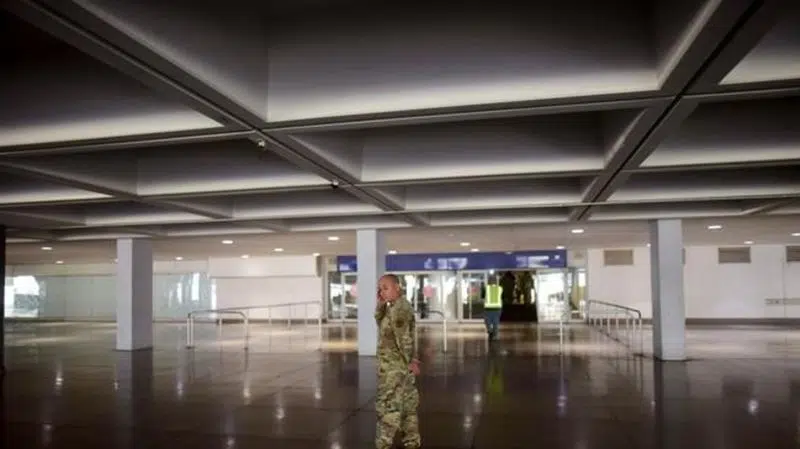
Puerto Rico cracks down on violators of coronavirus curfew
SAN JUAN, Puerto Rico — Sirens blared across Puerto Rico’s busiest beaches on Monday as police cleared hundreds of tourists from the U.S. territory’s coast in a crackdown on people violating a newly imposed curfew aimed at curbing the new coronavirus.
Using loudspeakers, police in patrol cars ordered people off the beach: “Please stay at home. Governor’s executive orders. The beach is closed.”
The sweep surprised many tourists in the capital of San Juan, some of whom disregarded orders to stay inside their hotels on a sunny day.
“Why would I get sick at the beach? I’m not going to be touching anything,” said 46-year-old David Zimmer of Richmond, Minnesota, as he joined a group of family and friends flip-flopping their way to a beach that police had driven through just an hour ago to empty it out.


